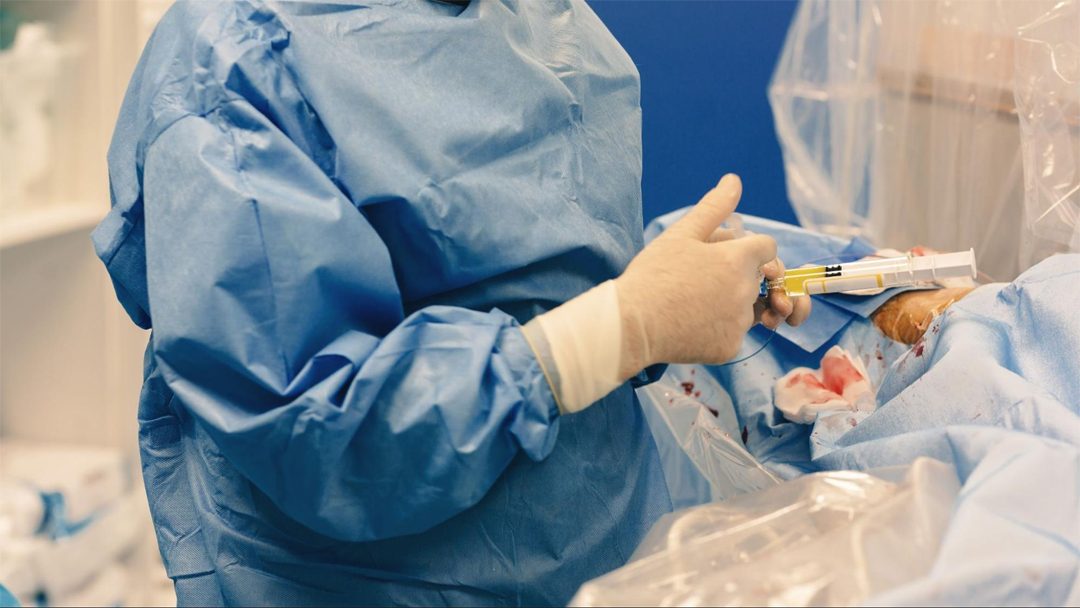Taking part in a BHF-funded clinical trial — TRED-HF
Originally published at bhf.org.uk, written by Phoebe Kitscha
Far from the days when heart failure was treated with bed rest and hope, many people with this condition can now be very well managed with medications. So well, in fact, that sometimes people’s symptoms disappear completely and their heart function recovers. But is it safe for those diagnosed with heart failure to stop taking their medications if they don’t have symptoms anymore?
The TRED-HF trial, which was supported by the BHF, aimed to find out. This small but important study was led by Dr Brian Halliday and Professor Sanjay Prasad, based at the Royal Brompton Hospital in London. 51 people who had been previously diagnosed with dilated cardiomyopathy (DCM) took part. DCM is a condition where the heart muscle becomes ‘dilated’, or stretched — which can weaken the heart and lead to heart failure. At the time of joining the study, participants had no symptoms due to their heart condition, but were still taking a least one heart failure tablet.
Over 6 months, some of the participants in the trial had their medication decreased until they were no longer receiving treatment, while others maintained their standard prescription. After 6 months, those in the ‘continued treatment’ group also had their treatment withdrawn. The researchers running the trial made sure that people in the trial were closely monitored to minimise any risk to their health, and medication was restarted immediately when needed.
When Dr Halliday presented the results of TRED-HF at the annual AHA conference last November, its findings sparked the interest of cardiologists around the world. In short — it’s not advisable for people with ‘recovered’ DCM to stop taking heart failure medications, as this can cause their symptoms to return.

But a trial is much more than its results, and what the experts think of it. Those graphs and statistics refer to the lives of real people. So we spoke to some of the people who took part in TRED-HF to get their side of the story.
Mike’s story
Mike Gosden was 18 when he first realised something might not be quite right with his health.
“I felt a bit limited in things I was able to do, but it never seemed that extreme. Over the years I went to doctors about it, who all told me I was fine. But eventually, at the age of 65, I was diagnosed with DCM and told my heart was not working correctly. But I was one of the lucky ones — I responded to the standard ACE inhibitor and beta blocker medication very quickly.”
But while the medication helped the symptoms Mike experienced as a result of his heart condition, they also had some side effects.
“A year after starting the ACE inhibitors I developed a ‘rare’ side effect — I became borderline anaemic. My doctors switched me to another type of ACE inhibitor, but that tablet had the same side effect — I even saw anaemia listed as one in the patient information leaflet! So because of that I wanted to try to get off the medication.”
“After I was diagnosed I quickly realised that there were two sorts of patients: the sort that say ‘yes — I will take these tablets every day’ without questioning anything… and the people like me — who question things. I started by reading information about DCM from the BHF and Cardiomyopathy UK, and it was through an email from Cardiomyopathy UK that I first found out about TRED-HF.”
A chance to avoid side effects from ACE inhibitors

Mike felt that the trial would offer a good opportunity to stop taking the medication, and get involved in research to help him to learn more about his condition.
“I discussed the trial with my doctors but they did not think my heart function was recovered enough at that time. But I carried on with my reading and research, and the following year began exchanging emails with Richard Mindham. He had also been previously diagnosed with DCM, and had been involved with the Royal Brompton in their research in this area. I brought the trial up again with my doctors and this time they said yes.”
Mike was one of the 50 per cent of people taking part in the trial whose medication couldn’t be completely removed.
“Even though the withdrawal was not successful for me, my experience of participating was positive. Normally when you see a doctor through the NHS things can seem rushed, but during the trial there was time to have proper discussions with Dr Halliday and the rest of the team. I think we learned a lot from each other.”
Although the result may have been a little disappointing for those involved, Mike feels that the study highlights the need to do more to understand more about how different people experience DCM.
“I now understand that DCM is not one single condition. Some people with DCM are almost certain to develop heart failure while others carry on leading a normal life. But we need ways to know which category people fall into. The one part of the trial I questioned was that it seemed it didn’t go far enough in terms of trying to find the reasons behind why withdrawal would be successful in some people but not in others. We had all sorts of things measured and recorded, but there could be other markers or lifestyle factors to explore. But I know that there’s only so much that can be done in one small study, and research is ongoing in this area.”
Lasting benefits
Since being involved in TRED-HF, Mike is continuing to educate himself about the heart and DCM.
“The doctors still worry about what drugs I should take and what dosage. But I am feeling well and continuing to do my daily dose of exercise, and now have no trouble cycling fairly long distances (often over 10 miles) and routes involving steep hills. Through reading patient information and medical textbooks, I’m gaining further insight into my condition. But I still feel that there is a ‘gap’ between these sources of information.”
“So I’ve started writing a document to try to bridge that gap — ‘the patient’s perspective of DCM’. Mainly this is for my own benefit, but I hope that in time it will become a small book which could be helpful to others trying to understand this condition.”
Mike also reports that changes in his treatment during the trial seemed to have had a positive effect on his health.
“After discussing the medication with the Bristol Heart Institute (the team responsible for my long term care) they agreed that I could continue with my new regimen. So even though I was not able to come off the standard medication, taking part in the trial has had a really positive effect on my overall quality of life.”
Jane’s story

For Jane Rowlands, it was a dramatic symptom that kick-started her difficult path to a diagnosis of DCM.
“The symptom that I developed was I ‘blew up’ with water (oedema) — but doctors didn’t seem to be able to get to the bottom of what was happening to me. I had to keep going back for several different tests on different areas of my body, and had a range of potential diagnoses from a pulmonary embolism to cancer. The prognosis seemed poor, so I left my job as a principal — having worked in education all my life.”
“Nobody seemed to think it might be an issue with my heart, until my sister-in-law (who is a chest consultant) saw how unwell I was at a family party, went and checked my health records and told me to go to King’s College Hospital. After that point, things improved a lot — I got a diagnosis, got the treatment I needed and felt well looked after.”
But like many people with a long term condition, Jane didn’t want to be taking pills every day, particularly as her health had improved. When she returned to King’s for follow up checks and a scan of her heart, she was told that her heart was working much better. So she asked if she could stop taking the medication.
“My consultant was not happy for me to do this — but I think he had the impression I was going to do it anyway even if he said no. So he referred me to TRED-HF as a way for me to do this more safely.”
Ongoing support
Like Mike, Jane was one of the people in the trial who did not have her medication stopped successfully. While this was not exactly the result she had hoped for, she credits the people behind the trial with her positive experience taking part.
“Dr Halliday and the team went above and beyond to make sure everything was going well. After one of my study visits, he rang later that day to say that he was slightly concerned with one of my readings and asked if I could come back in. The traffic was terrible, and it took until about 7pm for me to get there. Dr Halliday and the team were there waiting and checking on my progress along the way. So overall I think a lot of the success and my positive experience was down to their dedication to the project and ‘super care’.”
Since participating in the trial, Jane is now on a reduced dose of heart failure medications.
“Stopping my medication was something I wanted to do anyway, and this trial allowed me to do that for a little while. I also think being recruited into the trial quite quickly after my diagnosis was a good thing. That ongoing contact after the shock of my illness helped me to feel very supported, and probably more positive than if I hadn’t had that ongoing contact.”
Interested in taking part in a clinical trial?
Clinical research is dependent on patient volunteers. Without people like Mike and Jane taking part, we could not get the answers to these crucial questions. If you are interested in taking part in a clinical trial, you should speak to your doctor for advice about whether you may be suitable.
For more information about clinical trials, and to search for trials you may be eligible for, visit NIHR Be Part of Research.
Sign up for our research newsletter
Taking part in a BHF-funded clinical trial — TRED-HF was originally published in British Heart Foundation on Medium, where people are continuing the conversation by highlighting and responding to this story.
Original Article










